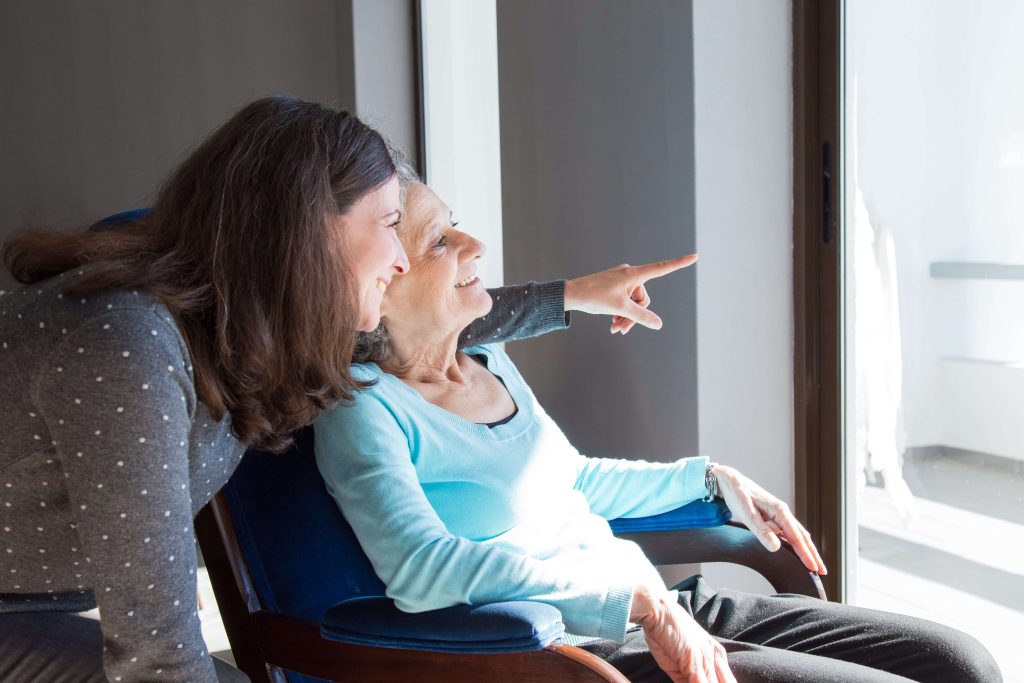
How to Become a Caregiver or Carer in the UK
- Categories Featured
Care Worker Jobs are currently trending in the UK. Caregivers play a crucial role in supporting individuals to maintain an independent and comfortable lifestyle. Individuals often enlist the services of these professionals to assist with various tasks, promoting a fulfilling life either at home or in nursing facilities. Understanding the responsibilities of a caregiver can aid in determining if this profession aligns with your interests and guide you through the necessary steps to pursue a career in caregiving. In this article, we will have a comprehensive overview, defining the role of a caregiver, detailing the process of becoming one, categorising different types of caregivers, elucidating their duties, enumerating essential skills, and shedding light on their work environments.
Who is a Caregiver or Carer?
A caregiver, also known as a carer, is a skilled professional who assists clients with daily activities and personal care. Their services extend to the elderly, injured, ill, frail, and those who are mentally or physically disabled. People often hire caregivers to support themselves or their loved ones in bathing, managing bathroom functions, feeding, and personal grooming. Additionally, caregivers may be hired to offer companionship, providing emotional care and mental support to the individuals under their care.
Types of Caregiver or Carer
Caregivers provide their care to a diverse range of clients, with these individuals being family members, friends, or professionals. The following are various categories of caregivers:
- Respite Caregivers: These professionals provide relief to the primary caregiver, often a family member, by taking over duties for a specified period. Respite caregivers can deliver care for a few hours or extend their services to several weeks, operating in the client’s residence, specialised day centre, or healthcare institution.
- Private Duty Home Caregivers: Working directly in clients’ homes, these caregivers assist individuals with their daily tasks, aiming to simplify and enhance their home life.
- Senior Caregivers: Also known as elder care providers, these caregivers specialise in serving elderly patients, especially those with conditions like dementia. Their services can be rendered in individuals’ homes, retirement homes, or sheltered housing facilities.
- Specialised Caregivers: This category contains caregivers with expertise in addressing clients’ unique needs with conditions such as cancer or other chronic diseases. Additionally, specialised caregivers may possess knowledge tailored to cases involving spinal issues or other specific injuries.

Responsibilities of Caregivers of Carers
A caregiver supports individuals who are sick, disabled, or elderly by assisting with various daily activities. Their responsibilities involve facilitating the client’s day-to-day routine through the implementation of typical tasks, including:
- Communicating with the client’s doctors and family to address emotional and medical concerns.
- Prioritising the client’s well-being and safety.
- Assisting clients with personal care activities like dressing, bathing, medication management, meal assistance, and accompanying them to medical appointments.
- Monitoring and managing the patient’s medications, updating health charts, and promptly reporting any changes in the client’s health.Coordinating with healthcare professionals to ensure the client receives comprehensive and timely medical attention.
- Providing companionship and emotional support, recognizing the importance of mental well-being in overall health.
- Creating and maintaining a safe and comfortable environment for the client, addressing any potential hazards or obstacles.
- Offering assistance with mobility and exercises as prescribed by healthcare professionals to promote physical well-being.
- Managing household tasks, such as light housekeeping and meal preparation, to contribute to the overall comfort and functionality of the client’s living space.
- Keeping detailed records of care activities, changes in the client’s condition, and any noteworthy observations, facilitating effective communication with healthcare providers and family members.
A caregiver plays a crucial role in enhancing the quality of life for individuals facing health challenges by providing compassionate and comprehensive support in various aspects of their daily lives.
Check out the Care Certificate from Royal Open College. Specially created for the aspiring care worker.


Work Environment of Caregivers
Caregivers play a crucial role in assisting clients across diverse environments, including hospitals, client residences, and care facilities. The nature of these positions may involve prolonged standing or sitting periods, medical equipment utilisation, collaboration with fellow professionals, and continuous monitoring of vital signs such as breathing, heart rate, or blood pressure. Physical strength is essential for lifting items or turning patients in beds.
Caregivers may be employed full-time; some may work during nighttime hours, with shifts extending from 8 to 12 hours. The duration of assistance provided to clients can vary, ranging from brief moments to extended hours. Specific roles may require a car or a valid driving license to fulfil particular functions. Additionally, some positions may require wearing a uniform as part of the job requirements.
Skills Required for Becoming a Caregiver
Caregivers wear many hats, providing invaluable support to those in need. But what truly sets them apart? It’s not just their dedication; it’s their mastery of essential skills that make all the difference. Here are five pillars that are required for a successful caregiver or carer career:
1. Compassion: A Heartfelt Connection
Compassion is more than just empathy. It’s actively understanding and alleviating another’s suffering. In a world where many care recipients face hardship, compassion allows caregivers to connect on a deeper level. It’s the foundation of trust and comfort, enabling caregivers to provide the best possible care.
2. Communication: Bridging the Gap
Clear and effective communication is crucial. Caregivers need strong verbal and written skills to interact with clients, families, and healthcare professionals. From updating doctors on progress to understanding medication instructions, communication ensures everyone is on the same page. But it doesn’t stop there. Active listening to clients’ needs and concerns fosters a sense of security and well-being.
3. Observation: Seeing Beyond the Surface
Only some people can easily express their needs. And this is where keen observation comes in. Caregivers need to be adjusted to minute queues – a change in mood, a shift in behaviour, a flinch of pain. These details can reveal hidden concerns and potential health risks, allowing the caregiver to address them proactively. Observation is the silent language of care, ensuring the well-being of those struggling to speak for themselves.

4. Time Management: Orchestrating the Day
Caregiving often involves juggling multiple tasks within tight schedules. Time management has become an essential skill. Whether planning daily routines, coordinating appointments, or prioritising tasks, caregivers need to be masters of organisation. This ensures they deliver quality care while maintaining balance in their own lives.
5. Patience: A Steady Hand in Uncertain Waters
Caregiving can be a marathon, not a sprint. Some clients may require more time and support than others. Patience allows caregivers to stay calm and supportive, offering unwavering encouragement and understanding. It’s the bedrock of trust and fosters a positive environment for healing and progress.
These five skills are not just means; they’re the soul of caregiving. By nurturing them, caregivers can provide exceptional care and find immense personal fulfilment in their rewarding journey.
Pathways of Becoming a Caregiver or Carer in the UK
Step 1: Self-discovery – Is caregiving for you?
Think about your values: Do you find helping others fulfilling? Can you empathize and be patient? Caring involves putting others’ needs first, so consider if this aligns with your personality.
Explore different sectors: Social care offers diverse options. You could work with children, adults, or seniors in homes, and hospitals, or even specialize in specific needs like dementia care.
Volunteer to test the waters: Volunteering lets you experience the joys and challenges of caregiving without full-time commitment. It can also provide valuable experience for future applications.
Step 2: Equip Yourself – Education and Training
Formal qualifications: Many employers prefer candidates with A-levels, GCSEs, or relevant health and social care diplomas. First aid skills are often a bonus.
Apprenticeships and part-time roles: Gain practical experience while learning from experienced caregivers. These options can also lead to full-time positions.
Continuous learning: Consider specialized courses to develop your skills in dementia care, stroke recovery, or diabetes management. Food safety, activity facilitation, and nutrition are valuable areas of expertise.
Step 3: Gain Experience – Put your skills to the test
Volunteer opportunities: Look for organizations supporting vulnerable groups like hospices, hospitals, or care homes. This allows you to help others while refining your skills.
Background checks: Prepare for potential background checks, including medical exams and DBS verification.
Step 4: Craft Your Path – Finding the right caregiver role
Freelance or agency work: Offer your services directly to clients or join an agency for placement opportunities in their homes.
Permanent or contract roles: Consider working in a care home or similar institution. Explore online job boards and organization websites.
Tailored applications: Highlight skills and qualifications that match the specific job requirements. Study the job description to understand the hiring manager’s needs.

Caregiver Career Prospects in the UK
In the UK, aspiring care workers can expect a rewarding career with decent pay. While entry-level positions start at £21,190 per year, the average annual salary sits comfortably at £23,507 (£12.06 per hour). Experienced professionals can even reach up to £37,425, showcasing the potential for growth and financial security. So, if you’re passionate about helping others and don’t mind hard work, caregiving offers a promising path with both personal fulfilment and a healthy income.
Now let’s have a look at the career prospects as a caregiver or carer in the UK.
Strong demand: UK healthcare needs more caregivers due to an ageing population and increased mental health awareness. This translates to:
Job security: Plenty of opportunities across diverse sectors (adult social care, children’s care, mental health, nursing).
Growth potential: Advance through specialization, leadership, or management roles.
Diversified opportunities:
Specialization: Dementia care, palliative care, mental health support.
Work settings: Homes, care homes, hospitals, community settings, freelance.
Flexible hours: Part-time, full-time, evenings, weekends.
Rewards and challenges:
Fulfilling work: Make a positive impact on individuals’ lives.
Personal development: Build skills in empathy, communication, and organisation.
Demanding work: Can be physically and emotionally challenging.
Shift work: Be prepared for flexible hours and potential night shifts.
Overall, caregiving in the UK offers promising prospects with diverse opportunities, strong demand, and the potential for personal and professional fulfilment. It’s a career path worth considering if you have the passion and skills to make a difference in people’s lives.
Conclusion: Embrace a Rewarding Journey
Becoming a caregiver in the UK is more than just a job; it’s a pathway to continuous learning, deep fulfilment, and the opportunity to make a tangible difference. Whether drawn to children’s laughter, seniors’ resilience, or individuals’ mental health journeys, caregiving offers a tapestry of experiences woven with compassion, commitment, and personal growth.
Remember, the path to becoming a caregiver is diverse. Qualifications, volunteering, part-time roles, and apprenticeships all lead to the same destination: a career dedicated to service. So, take a deep breath, explore your options, and trust your passion. The UK’s care sector welcomes individuals like you, ready to embrace the challenges and revel in the rewards of this meaningful profession.
Step forward, equip yourself with the necessary skills, and start this rewarding journey. Every smile, every laugh, and every moment of progress you witness will be a testament to your impact. Remember, the greatest wealth lies not in material possessions but in the hearts you touch and the lives you enrich. Welcome to the world of caregiving, where your passion becomes your purpose.

